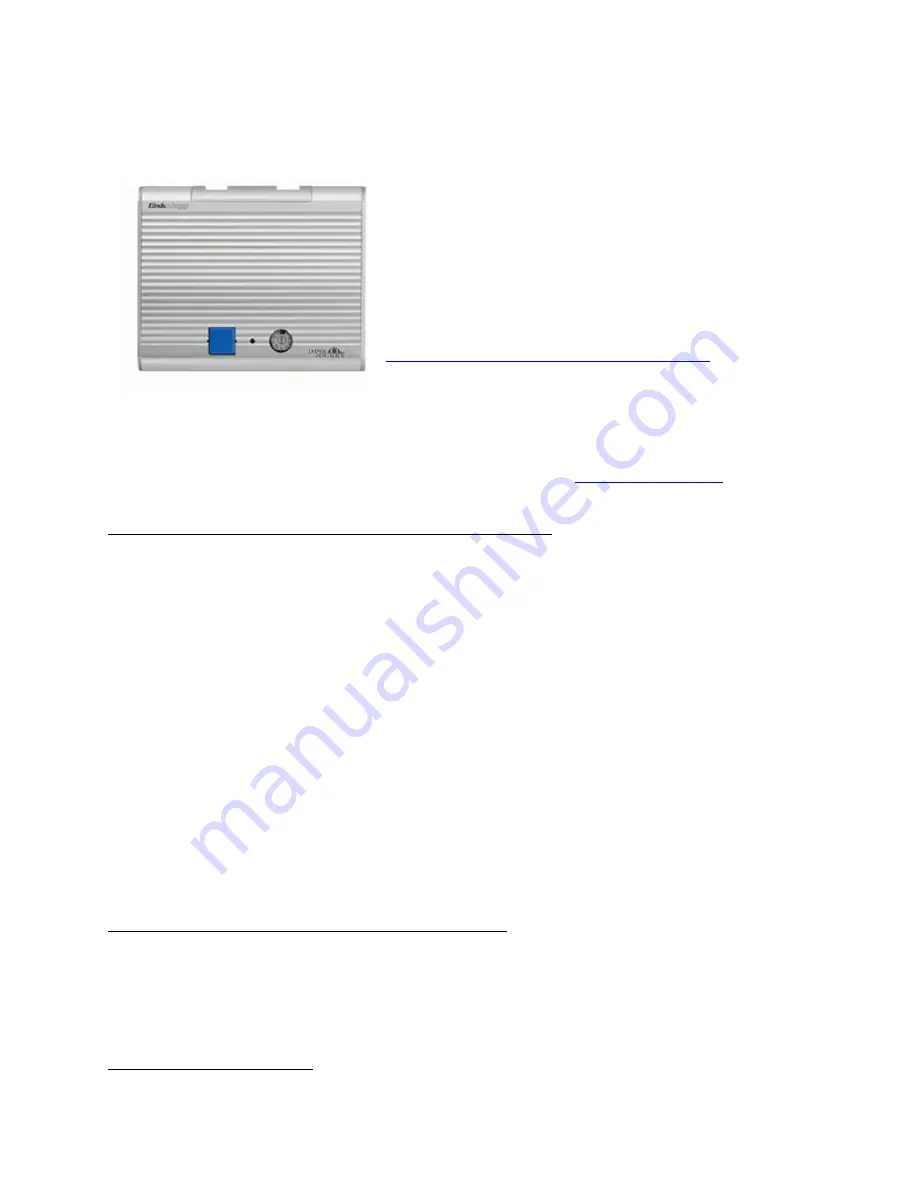
Disk Jockey Quick Start Guide
Welcome to the Diskology Disk Jockey (DJ) Quick Start guide for the
new, ultra-portable, compact Disk Jockey! This quick start guide was
designed to get you up and running as quickly as possible. The DJ is
actually a pretty simple device. Regardless of the task that you want
your DJ to accomplish, a quick understanding of how the DJ works
both attached to the computer and as a stand alone unit should do the
trick for you. If you are interested in more of the theory behind the
different “modes” of the DJ (
mount
drives,
mirror
,
span
,
copy
,
verify
,
test
and
erase
x1,
erase
x3) you can download the full user’s
guide located in the support section of our webpage (more specifically
http://www.diskology.com/DiskJockeyUserGuide.pdf
).
The concept behind the DJ is that you select the mode that you want
to use, attach the drive(s) that you intend to use and press the blue button once to power the drives up and again to
begin the function. That’s it! Problems with the drives, cables not securely fastened, etc., will result in a series of
loud beeps from the DJ. You can learn more about the beep patterns in the user’s guide on our web site. This Quick
Start guide also includes a copy of our generic “tech support email” that typically answers most questions. You can
also find more Q&A’s at the support section of our web site or you can email
for a quick
answer.
Using Modes 3, 4, 5, 6 & 7 (copy, compare, disk check and disk erase)
Let us take you through an example using the most popular DJ mode, mode 3, or Copy Mode. Note – All modes that
don’t require a computer operate in the way described below. So if you are looking to copy (Mode 3), compare (4),
disk check (5) or erase data via either a one-pass or three-pass erase mode (6 or 7) the following instructions will
help you complete the task.
Step 1
: Using the small screwdriver switch the DJ to Mode 3 (or 4, 5, 6 or 7 depending on desired results) on the
Mode Switch dial.
Step 2
: Attach the drive that you wish to copy data from (source) to port 1 of the DJ. There is an arrow showing data
copy flow on the DJ as well.
Step 3
: Attach the drive that you wish to copy to (target) to port 2 of the DJ.
Step 4
: Hook up the power to the DJ (and plug it into the wall while you’re at it!)
Step 5
: Press the Blue power button on the DJ one time. You should hear the drives start spinning up.
Step 6
: After waiting a few seconds (typically no more than 5-10 seconds) press the Blue power button again, the
copy process should begin.
Step 7
: Go surf the web, answer some email, etc. The progress of the copy can be deciphered using the LEDs per the
notes in the manual, but you can typically count on a copy of about 2 GB/min (actually a little less). So if you are
copying a 40 GB drive, the entire process should take between 18-20 minutes. When the copy is complete the DJ
will automatically power down the drives and shut off.
NOTE – If you run into a problem with the DJ and need to power the unit down, hold down the Blue power button
for approximately 10 seconds and you will hear the drives spin down and the power turn off.
Using Modes 0, 1 and 2 (standard, mirror and span / combine)
Mode 0 (mounting drives as standard desktop storage via USB or firewire), 1 (mirroring) and 2 (combine /
spanning) require that the DJ is hooked up to the computer via the included USB or firewire cable. Mode 0 will
make the drive(s) attached to the DJ accessible as typical desktop storage, no need for an enclosure. Mode 1
(mirroring) will present one drive icon on your desktop. Data copied to the icon will be copied to both drives
attached to the DJ simultaneously for an instant backup. Mode 2 (combine / spanning) will combine the drive sizes
of two drives attached to the DJ to appear as one logical volume to the DJ (ex: 80 GB and 240 GB = one 320 GB
drive).
Support Help / Troubleshooting


